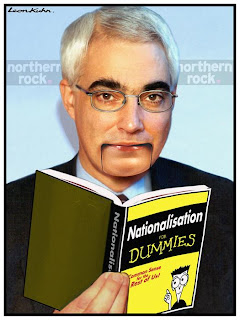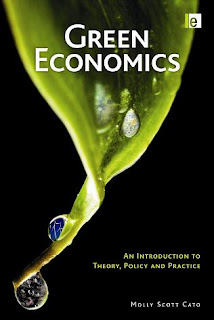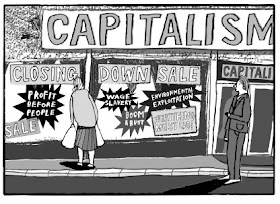My content has focused on climate change, food security, localisation and trade. Yesterday, perhaps to convince them that I really am an economist, I drew one of the classic economics graphs myself for the first time in years. It was the usual two lines, one sloping up, the other sloping down. Something magical and meaningful and mysterious was supposed to happen at the point where the two lines cross: equilibrium.
 Of course the flaw with this method of representing the world in a system of initially straight and then, in the more advanced courses, curved lines, is that there are no numbers! Axes are labelled capital P and Q while points on the axes are labelled with lower-case ps and qs. The point of equilibrium is represented by p and q with an asterisk.
Of course the flaw with this method of representing the world in a system of initially straight and then, in the more advanced courses, curved lines, is that there are no numbers! Axes are labelled capital P and Q while points on the axes are labelled with lower-case ps and qs. The point of equilibrium is represented by p and q with an asterisk.On one level I can see the funny side of this. In a rather dry and Puritanical sense, the signs and symbols of economics speak to the ritualistic side of proponents of the most positivistic of the social sciences. When I write of 'holy writ' it is only partly a joke. The jargon of economospeak carries power just as the words of the Nicene creed do. We shall not resist the command to compete, to achieve economies of scale, to avoid moral hazard. The true economist is convinced that s/he has some sense of order and some grasp of meaning in the world of uncertainty and unpredictability. What else is a religion for?
But beyond the humour something very serious is going on. The lines I was drawing were taken from the Stern Review and represented the costs and benefits of taking action to tackle climate change. They were literally matters of life and death. In this case numbers did emerge; numbers which gave justification to the continuation of the economic system that is eliminating our species and harming our planet. My question is whether something of such depth and importance should be left in the hands of economists.
*Thanks to Rupert Read for the title for this post.





